0
Policy Brief
Community:
Mar 1, 2023
Unfortunately, there are more youth experiencing homelessness than there are resources available. Up to 40% of youth experiencing homelessness identify as lesbian, gay, bisexual, transgender, and queer/questioning (LGBTQ+). Homelessness is often the result of multiple factors including historical and present systemic racism, discrimination, and socio-economic inequities. Learn more in our new policy brief.
Authored by: National Network for Youth
Topics: Criminal justice, Homelessness, Housing, Legislation & Policy, Mental health, Racial inequalities, Safety, Stability, Youth
 Shared by Sandra Ware
Shared by Sandra Ware
Sandra Ware posted a
on Jun 8, 2023
National Network for Youth
Unfortunately, there are more youth experiencing homelessness than there are resources available. Up to 40% of youth experiencing homelessness identify as lesbian, gay, bisexual, transgender, and queer/questioning (LGBTQ+).
0
Policy Brief
Community:
Jun 4, 2019
The Department of Housing and Urban Development (HUD) has announced its intention to roll back protections for transgender people experiencing homelessness. The newly proposed rule, which is in the early stages of the rulemaking process and has not yet been publicly posted to the Federal Register, would allow homeless shelters to discriminate based on gender identity, putting transgender people in danger of violence and further housing instability. This is part of a long string of attacks the Trump administration has directed toward the transgender community, such as implementing the infamous military ban, contributing to a pattern that legally perpetuates discrimination against transgender people in this country.
Authored by: Aastha Uprety for Equal Rights Center
Topics: Health, Homelessness, Housing, Legislation & Policy, Racial inequalities
 Shared by Housing Is
Shared by Housing Is
Housing Is posted a
on Jun 13, 2019
Aastha Uprety for Equal Rights Center
The Department of Housing and Urban Development (HUD) has announced its intention to roll back protections for transgender people experiencing homelessness.
0
News Article
Community:
Jun 9, 2019
When applications opened for New York City’s first affordable housing property for LGBTQ older adults recently, 1,000 people eagerly sent theirs in on that first day.
Authored by: Grace Birnstengel for Forbes
Topics: East Coast, Homelessness, Housing, Low-income, Seniors
 Shared by Housing Is
Shared by Housing Is
Housing Is posted a
on Jun 13, 2019
Grace Birnstengel for Forbes
When applications opened for New York City’s first affordable housing property for LGBTQ older adults recently, 1,000 people eagerly sent theirs in on that first day.
0
News Article
Community:
Jun 10, 2019
More than a half million renters have been evicted in Los Angeles County over the past eight years, according to a new report by Public Counsel and the UCLA School of Law that calls on county supervisors to adopt permanent rent control measures.
Authored by: Jenna Chandler for Curbed Los Angeles
Topics: Homelessness, Housing, Legislation & Policy, Low-income, Research, West Coast
 Shared by Housing Is
Shared by Housing Is
Housing Is posted a
on Jun 13, 2019
Jenna Chandler for Curbed Los Angeles
More than a half million renters have been evicted in Los Angeles County over the past eight years, according to a new report by Public Counsel and the UCLA School of Law that calls on county supervisors to adopt permanent rent control measures.
0
Policy Brief
Community:
May 10, 2019
Policies such as those outlined in the draft proposed rule are having, and will continue to have a significant detrimental impact on survivors of domestic violence and sexual assault by deterring immigrant families, including those with U.S. citizen and Lawful Permanent Resident children, from accessing critical help when they need it. Housing assistance is a vital resource for survivors, giving them the security they need to leave abuse without having to fear that doing so will result in homelessness, as well as providing a safe environment to begin their recovery.
Authored by: Grace Huang for the Asian Pacific Institute on Gender-Based Violence
Topics: Domestic violence, Homelessness, Housing, Immigrants, Legislation & Policy
 Shared by Housing Is
Shared by Housing Is
Housing Is posted a
on Jun 7, 2019
Grace Huang for the Asian Pacific Institute on Gender-Based Violence
Policies such as those outlined in the draft proposed rule are having, and will continue to have a significant detrimental impact on survivors of domestic violence and sexual assault by deterring immigrant families, including those with U.S.
0
Research
Community:
Jun 5, 2019
A new report by Chapin Hall at the University of Chicago finds that youth homelessness has its origins in early family experiences, including family homelessness. The findings make painfully clear that housing alone is insufficient to prevent and “end” youth homelessness, and that addressing youth homelessness alone, without explicit connections and fervent attention to family homelessness, will result in continued homelessness for all populations.
Authored by: SchoolHouse Connection
Topics: Early childhood, Homelessness, Housing, Legislation & Policy
 Shared by Housing Is
Shared by Housing Is
Housing Is posted a
on Jun 5, 2019
A new report by Chapin Hall at the University of Chicago finds that youth homelessness has its origins in early family experiences, including family homelessness.
0
News Article
Community:
May 16, 2019
In African American neighborhoods like Williams’ South Chicago, landlords file for evictions at a substantially higher rate than in other parts of the city, according to a new report from the Lawyers’ Committee for Better Housing, a local housing advocacy organization that reviewed nearly 300,000 Cook County eviction court records for 2010 through 2017. In 2017, landlords in majority-African American neighborhoods filed for evictions four times more often than in white neighborhoods, the report found.
Authored by: Javonte Anderson for The Chicago Tribune
Topics: Homelessness, Housing, Midwest, Racial inequalities
 Shared by Housing Is
Shared by Housing Is
Housing Is posted a
on May 30, 2019
Javonte Anderson for The Chicago Tribune
In African American neighborhoods like Williams’ South Chicago, landlords file for evictions at a substantially higher rate than in other parts of the city, according to a new report from the Lawyers’ Committee for Better Housing, a local housing advocacy organization that reviewed nearly 300,000 Co
0
News Article
Community:
May 23, 2019
A rule proposed by the Department of Housing and Urban Development may allow single-sex shelters to turn away trans people.
Authored by: Tim Fitzsimons for NBC News
Topics: Homelessness, Housing, Legislation & Policy
 Shared by Housing Is
Shared by Housing Is
Housing Is posted a
on May 30, 2019
Tim Fitzsimons for NBC News
A rule proposed by the Department of Housing and Urban Development may allow single-sex shelters to turn away trans people.
0
Research
Community:
May 21, 2019
The Youth Risk Behavior Survey (YRBS) was first developed by the Centers for Disease Control and Prevention (CDC) in 1990 to assess the health risk behaviors of youth and adults in the United States. For the first time since the survey has been widely administered, the 2017 YRBS optional question list included two questions pertaining to homelessness. SchoolHouse Connection analyzed demographic and risk factor data from the YRBS in 17 states[1], comparing high school students experiencing homelessness and those not experiencing homelessness. This series shares the striking and heartbreaking results of that analysis, with tangible action steps schools can take to promote safety and health for students experiencing homelessness.
Authored by: SchoolHouse Connection
Topics: Education, Homelessness, Low-income, Research, Youth
 Shared by Housing Is
Shared by Housing Is
Housing Is posted a
on May 21, 2019
The Youth Risk Behavior Survey (YRBS) was first developed by the Centers for Disease Control and Prevention (CDC) in 1990 to assess the health risk behaviors of youth and adults in the United States.
0
Research
Community:
Mar 14, 2019
Despite abundant evidence about the effect of children’s socioeconomic circumstances on their transition to adulthood, we know much less about the effect of social policy programs aimed at poor families with children in facilitating how and when children become adults. This issue is particularly important for the U.S. federal subsidized housing program given its long history of placing subsidized units in some of the poorest and most racially segregated neighborhoods. Using counterfactual causal methods that adjust for the length of receipt of subsidized housing, I estimate the effect of subsidized housing on teenage parenthood, household formation, and educational attainment. I find that the subsidized housing program has either null or positive effects on the transition to adulthood and that these effects vary by both race and gender. These results underscore the importance of considering whether social programs have differential effects on the life chances of individuals based on both race and gender.
Authored by: Yana Kucheva for Demography
Topics: Homelessness, Housing, Racial inequalities, Research, Youth
 Shared by Housing Is
Shared by Housing Is
Housing Is posted a
on May 20, 2019
Yana Kucheva for Demography
Despite abundant evidence about the effect of children’s socioeconomic circumstances on their transition to adulthood, we know much less about the effect of social policy programs aimed at poor families with children in facilitating how and when children become adults.
0
Policy Brief
Community:
May 9, 2019
On May 9, the House Appropriations Committee passed its FY2020 appropriations bill for Labor, Health and Human Services, and Education. The House bill includes $100 million in FY2020 funding for the McKinney-Vento Act’s Education for Homeless Children and Youth (EHCY) program. This represents a 7% increase over the FY2019 level; if enacted, it would represent a 30% increase in EHCY funding since FY2017.
Authored by: SchoolHouse Connection
Topics: Child welfare, Funding, Homelessness, Housing, Legislation & Policy
 Shared by Housing Is
Shared by Housing Is
Housing Is posted a
on May 15, 2019
On May 9, the House Appropriations Committee passed its FY2020 appropriations bill for Labor, Health and Human Services, and Education. The House bill includes $100 million in FY2020 funding for the McKinney-Vento Act’s Education for Homeless Children and Youth (EHCY) program.
0
News Article
Community:
May 7, 2019
More and more, the homeless are making themselves at home in L.A.'s public places. Problems related to that population are putting a strain on city agencies.
Authored by: Rob Hayes for ABC 7
Topics: Funding, Homelessness, Housing, West Coast
 Shared by Housing Is
Shared by Housing Is
Housing Is posted a
on May 9, 2019
More and more, the homeless are making themselves at home in L.A.'s public places. Problems related to that population are putting a strain on city agencies.
0
Policy Brief
Community:
May 1, 2019
Stable housing plays a vital role in people’s recovery from substance use disorders (SUDs). An inability to pay rent and the threat of losing housing can lead to stress that triggers substance misuse and relapse. People experiencing homelessness who also have SUDs typically find it difficult to address their substance use without a safe place to live, because they often use alcohol or drugs to cope with the dangers of life on the streets. In 2018, Congress passed the SUPPORT for Patients and Communities Act (known as the SUPPORT Act), which provided a variety of new programs and funding opportunities to help states and localities address the opioid epidemic and broadly help people with substance use disorders.
Authored by: Center on Budget and Policy Priorities
Topics: Homelessness, Housing, Legislation & Policy, Low-income, Mental health, Research, Substance abuse
 Shared by Housing Is
Shared by Housing Is
Housing Is posted a
on May 2, 2019
Center on Budget and Policy Priorities
Stable housing plays a vital role in people’s recovery from substance use disorders (SUDs). An inability to pay rent and the threat of losing housing can lead to stress that triggers substance misuse and relapse.
0
News Article
Community:
Apr 21, 2019
The county’s preliminary results look promising: more than 78% of Vital clients were booked into jail less often once enrolled in the program for at least six months. On average, Vital participants went to jail about a third less often per year compared to the three years before their enrollment. A typical client had at least two fewer bookings into a King County Jail compared to the three years before entering the program.
Authored by: Vianna Davila for The Seattle Times
Topics: Criminal justice, Health, Homelessness, Housing, Mental health, Partnerships, Substance abuse
 Shared by Housing Is
Shared by Housing Is
Housing Is posted a
on Apr 25, 2019
Vianna Davila for The Seattle Times
The county’s preliminary results look promising: more than 78% of Vital clients were booked into jail less often once enrolled in the program for at least six months. On average, Vital participants went to jail about a third less often per year compared to the three years before their enrollment.
0
News Article
Community:
Apr 10, 2019
Housing has been famously unaffordable in expensive cities such as San Francisco for a while. But now in tiny towns and counties across the country, an increasing share of rural residents are struggling to pay their rents and mortgages.
Authored by: Aimee Picchi for CBS News
Topics: Homelessness, Housing
 Shared by Housing Is
Shared by Housing Is
Housing Is posted a
on Apr 22, 2019
Aimee Picchi for CBS News
Housing has been famously unaffordable in expensive cities such as San Francisco for a while. But now in tiny towns and counties across the country, an increasing share of rural residents are struggling to pay their rents and mortgages.
0
Research
Community:
Nov 27, 2018
A growing body of research suggests that housing eviction is more common than previously recognized and may play an important role in the reproduction of poverty. The proportion of children affected by housing eviction, however, remains largely unknown. We estimate that one in seven children born in large U.S. cities in 1998–2000 experienced at least one eviction for nonpayment of rent or mortgage between birth and age 15. Rates of eviction were substantial across all cities and demographic groups studied, but children from disadvantaged backgrounds were most likely to experience eviction. Among those born into deep poverty, we estimate that approximately one in four were evicted by age 15. Given prior evidence that forced moves have negative consequences for children, we conclude that the high prevalence and social stratification of housing eviction are sufficient to play an important role in the reproduction of poverty and warrant greater policy attention.
Authored by: Ian Lundberg and Louis Donnelly
Topics: Early childhood, Homelessness, Housing, Low-income, Racial inequalities, Research
 Shared by Mica O'Brien
Shared by Mica O'Brien
Mica O'Brien posted a
on Apr 18, 2019
Ian Lundberg and Louis Donnelly
A growing body of research suggests that housing eviction is more common than previously recognized and may play an important role in the reproduction of poverty. The proportion of children affected by housing eviction, however, remains largely unknown.
0
News Article
Community:
Apr 15, 2019
Rapid re-housing was designed for people experiencing homelessness who have a good chance of paying for their own housing after a one-time boost. The Los Angeles Homeless Services Authority, which manages Measure H spending, is using the program to house a much wider segment of the homeless population.
Authored by: Madeleine Brand for KCRW
Topics: Funding, Homelessness, Housing, Legislation & Policy, Low-income, West Coast
 Shared by Mica O'Brien
Shared by Mica O'Brien
Mica O'Brien posted a
on Apr 18, 2019
Rapid re-housing was designed for people experiencing homelessness who have a good chance of paying for their own housing after a one-time boost.
0
News Article
Community:
Apr 14, 2019
In 2014 Caselli started Haven Connect, which is now based in Austin, to make it easier for property managers to communicate with affordable housing applicants, including those who are and aren’t homeless, and for applicants to update their information online.
Authored by: Anne Field for Forbes
Topics: Broadband, Homelessness, Housing, Low-income, Partnerships, South
 Shared by Housing Is
Shared by Housing Is
Housing Is posted a
on Apr 16, 2019
In 2014 Caselli started Haven Connect, which is now based in Austin, to make it easier for property managers to communicate with affordable housing applicants, including those who are and aren’t homeless, and for applicants to update their information online.
0
News Article
Community:
Apr 5, 2019
An Idaho lawsuit concerning how cities across the West enforce laws about sleeping in public—potentially changing how they treat their homeless populations—is now established as precedent. Barring a decision by the Supreme Court to address the case of Martin v. City of Boise, cities will not be able to arrest or punish people for sleeping on public property unless they provide adequate and relatively accessible indoor accommodations.
Authored by: Patrick Sisson for Curbed
Topics: Criminal justice, Homelessness, Housing, Legislation & Policy, Low-income
 Shared by Mica O'Brien
Shared by Mica O'Brien
Mica O'Brien posted a
on Apr 11, 2019
Patrick Sisson for Curbed
An Idaho lawsuit concerning how cities across the West enforce laws about sleeping in public—potentially changing how they treat their homeless populations—is now established as precedent. Barring a decision by the Supreme Court to address the case of Martin v.
0
Policy Brief
Community:
The Homeless Children and Youth Act of 2019 (H.R. 2001) is a bipartisan bill that removes barriers to U.S. Department of Housing and Urban Development (HUD) homelessness assistance for children, youth and families in the following ways.
Authored by:
Topics: Early childhood, Homelessness, Housing, Legislation & Policy, Youth
 Shared by Housing Is
Shared by Housing Is
Housing Is posted a
on Apr 4, 2019
The Homeless Children and Youth Act of 2019 (H.R. 2001) is a bipartisan bill that removes barriers to U.S. Department of Housing and Urban Development (HUD) homelessness assistance for children, youth and families in the following ways.
0
News Article
Community:
Apr 2, 2019
A comprehensive plan would increase King County residents’ confidence in local efforts to address the region’s homelessness crisis, and seeing fewer people living on the streets would prove that it’s working, according to a new poll. Conducted in February by Seattle-based Elway Research, the poll is the latest to explore county residents’ complex feelings about the homelessness crisis and the long-running effort to resolve it.
Authored by: Vernal Coleman for The Seattle Times
Topics: Homelessness, Housing, Legislation & Policy, Low-income
 Shared by Housing Is
Shared by Housing Is
Housing Is posted a
on Apr 4, 2019
Vernal Coleman for The Seattle Times
A comprehensive plan would increase King County residents’ confidence in local efforts to address the region’s homelessness crisis, and seeing fewer people living on the streets would prove that it’s working, according to a new poll.
0
Research
Community:
Mar 1, 2019
In 2015, approximately 21,000 youth in the United States became emancipated-commonly referred to as "aged out"-from the foster care system; neither being adopted nor reunified with their family of origin, and were therefore expected to live independent lives. In addition to the youth who aged out, nearly 1,000 youth ran away from foster care. Over the past two decades, studies have consistently indicated a strong association between experiencing homelessness and having prior placement in the foster care system. Youth who age out of foster care are among the populations at the greatest risk of becoming homeless with as many as half of youth experiencing homelessness or housing instability within 18 months of their exit from the foster care system. While precise population statistics on the number of youth experiencing homelessness are difficult to ascertain, it is estimated that approximately 1.24 million will face an episode of homelessness in a given year, representing approximately seven percent of the total population who are homeless.
Authored by: Nicholas Forge, Robin Hartinger-Saunders, Eric Wright, and Erin Ruel for Child Welfare Journal
Topics: Child welfare, Homelessness, Housing, Research, Youth
 Shared by Housing Is
Shared by Housing Is
Housing Is posted a
on Apr 4, 2019
Nicholas Forge, Robin Hartinger-Saunders, Eric Wright, and Erin Ruel for Child Welfare Journal
In 2015, approximately 21,000 youth in the United States became emancipated-commonly referred to as "aged out"-from the foster care system; neither being adopted nor reunified with their family of origin, and were therefore expected to live independent lives.
0
News Article
Community:
Mar 26, 2019
Community First! Village is built and run by the nonprofit Mobile Loaves & Fishes to lift the most chronically homeless off the streets and into a place they can call home. They live in about 100 RVs and 125 micro homes arranged on streets with names like "Peaceful Path" and "Goodness Way." Heavy machinery has broken ground on the neighboring 24 acres to add another 310 housing units. When complete, Mobile Loaves and Fishes believes it will be able to provide permanent homes for approximately 40% of the chronically homeless in Austin.
Authored by: Christopher Dawson for CNN
Topics: Community development, Homelessness, Housing, Place-based, South
 Shared by Housing Is
Shared by Housing Is
Housing Is posted a
on Mar 28, 2019
Christopher Dawson for CNN
Community First! Village is built and run by the nonprofit Mobile Loaves & Fishes to lift the most chronically homeless off the streets and into a place they can call home.
0
News Article
Community:
Mar 27, 2019
Georgia State University authors suggest requiring longer rental eviction notice periods and boosting legal representation for tenants
Authored by: Andrea Riquier for MarketWatch
Topics: Homelessness, Housing, Low-income, Research
 Shared by Housing Is
Shared by Housing Is
Housing Is posted a
on Mar 28, 2019
Andrea Riquier for MarketWatch
Georgia State University authors suggest requiring longer rental eviction notice periods and boosting legal representation for tenants
0
News Article
Community:
Mar 25, 2019
The problem of housing affordability, long a concern in popular big cities, has moved to rural America. Nearly one-fourth of the nation’s most rural counties have seen a sizeable increase this decade in the number of households spending at least half their income on housing, a category the federal government calls “severely cost-burdened.”
Authored by: Tim Henderson for Governing
Topics: Homelessness, Housing
 Shared by Housing Is
Shared by Housing Is
Housing Is posted a
on Mar 28, 2019
Tim Henderson for Governing
The problem of housing affordability, long a concern in popular big cities, has moved to rural America.
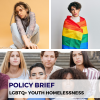

 Shared by Sandra Ware
on Jun 8, 2023
Shared by Sandra Ware
on Jun 8, 2023

 Shared by Housing Is
on Jun 13, 2019
Shared by Housing Is
on Jun 13, 2019

 Shared by Housing Is
on Jun 13, 2019
Shared by Housing Is
on Jun 13, 2019

 Shared by Housing Is
on Jun 13, 2019
Shared by Housing Is
on Jun 13, 2019
 Shared by Housing Is
on Jun 7, 2019
Shared by Housing Is
on Jun 7, 2019

 Shared by Housing Is
on Jun 5, 2019
Shared by Housing Is
on Jun 5, 2019


 Shared by Housing Is
on May 30, 2019
Shared by Housing Is
on May 30, 2019

 Shared by Housing Is
on May 30, 2019
Shared by Housing Is
on May 30, 2019
 Shared by Housing Is
on May 21, 2019
Shared by Housing Is
on May 21, 2019
 Shared by Housing Is
on May 20, 2019
Shared by Housing Is
on May 20, 2019
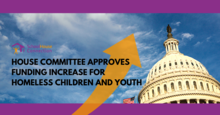
 Shared by Housing Is
on May 15, 2019
Shared by Housing Is
on May 15, 2019
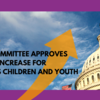
 Shared by Housing Is
on May 9, 2019
Shared by Housing Is
on May 9, 2019
 Shared by Housing Is
on May 2, 2019
Shared by Housing Is
on May 2, 2019
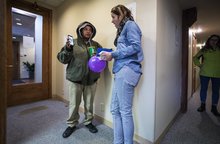
 Shared by Housing Is
on Apr 25, 2019
Shared by Housing Is
on Apr 25, 2019

 Shared by Housing Is
on Apr 22, 2019
Shared by Housing Is
on Apr 22, 2019

 Shared by Housing Is
on Apr 16, 2019
Shared by Housing Is
on Apr 16, 2019

 Shared by Housing Is
on Apr 4, 2019
Shared by Housing Is
on Apr 4, 2019
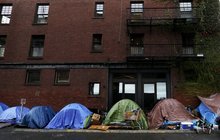
 Shared by Housing Is
on Apr 4, 2019
Shared by Housing Is
on Apr 4, 2019
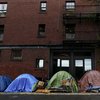
 Shared by Housing Is
on Apr 4, 2019
Shared by Housing Is
on Apr 4, 2019

 Shared by Housing Is
on Mar 28, 2019
Shared by Housing Is
on Mar 28, 2019

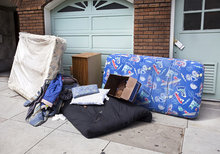
 Shared by Housing Is
on Mar 28, 2019
Shared by Housing Is
on Mar 28, 2019

 Shared by Housing Is
on Mar 28, 2019
Shared by Housing Is
on Mar 28, 2019